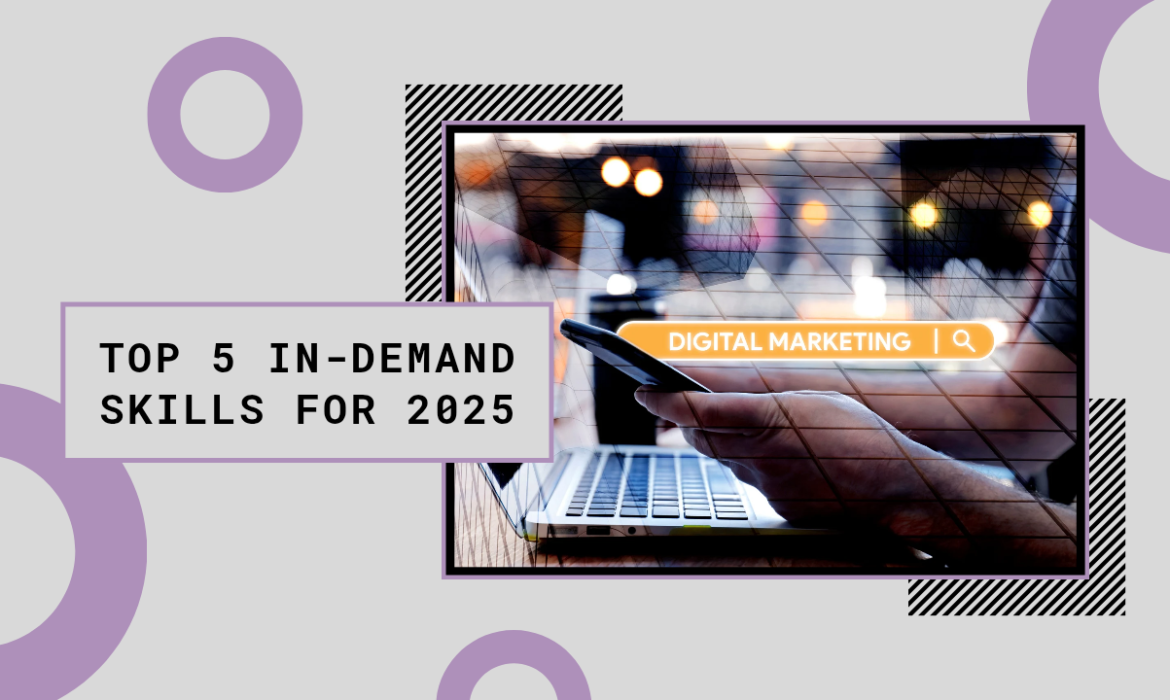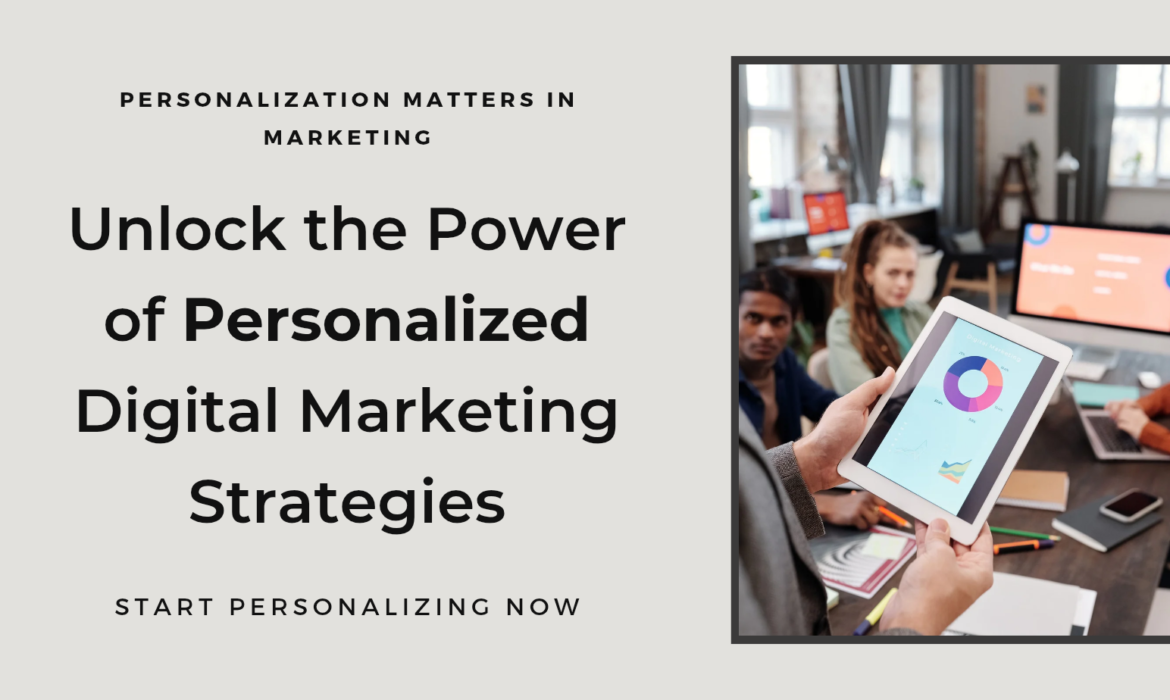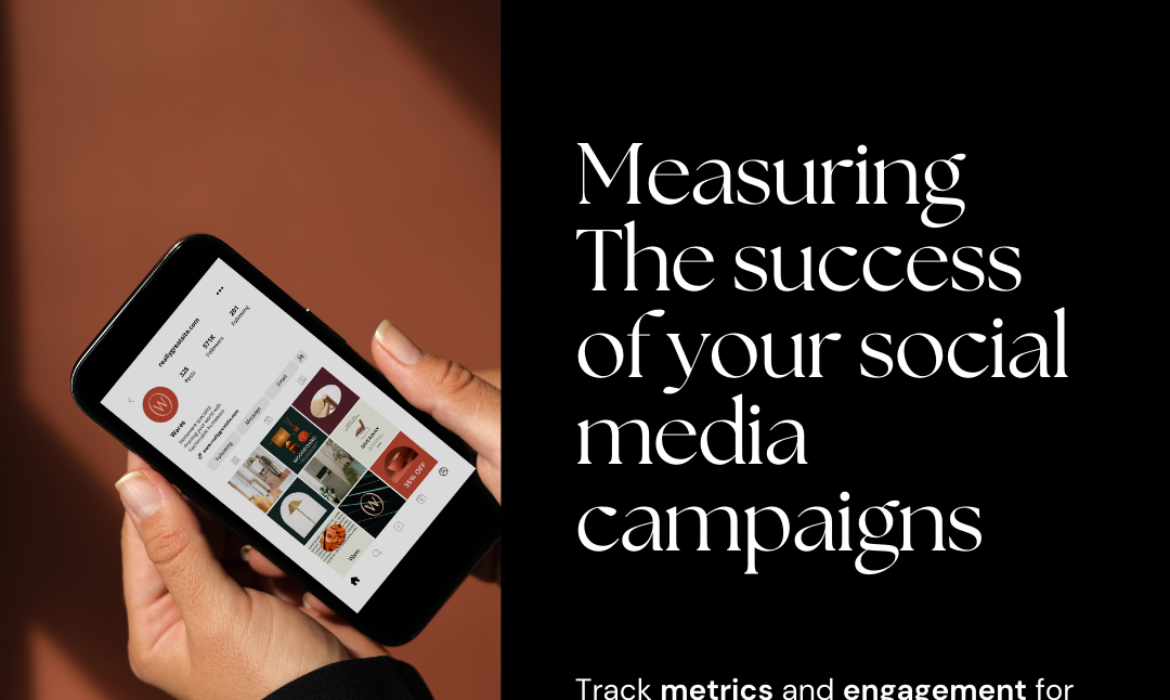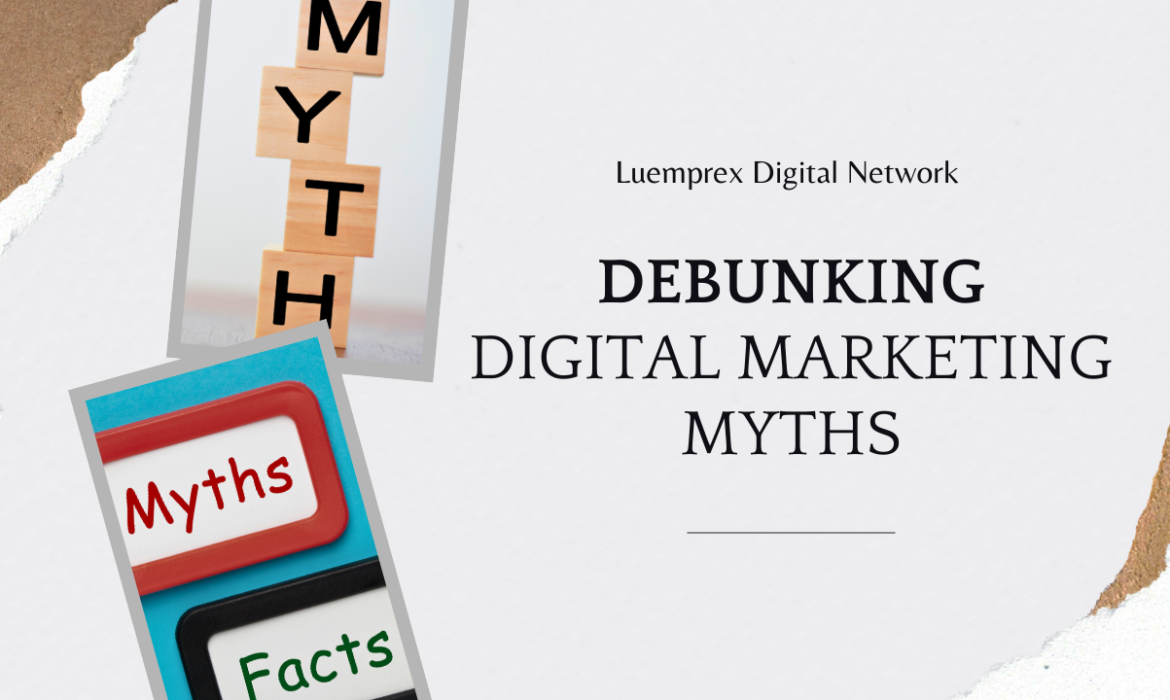081-4797-7173
The Importance Of A Graphic Designer In The Digital Marketing
Did you know that a good image can keep one glued to information seen on the internet? How many times have you scrolled past information and suddenly you go back to check it out just because you saw a mind-blowing image that caught your attention? Yeah, you guessed right, that is the work of a graphic designer.
In this article, we will be telling you who a graphic designer is, what role he plays in the digital market, and what skills a graphic designer should possess. Stick around, guys; it’s going to be a wonderful ride; let’s dive in.
What Is Graphic Design?
Graphic design is a communication mechanism that uses shapes, lines, images, colors, and words to create graphic content that we see all around us- digital fliers or physical fliers. A good design can attract customers, and communicate information effectively.
Who Is A Graphic Designer?
A graphic designer is a professional who combines art and technology to create unique visual images for different companies, businesses,, and organizations.
What skills should a graphic designer have?
1. Creativity
A good graphic designer should be creative, your uniqueness should be seen in your work; a graphic designer should think out of the box, developing innovative designs.
2. Typography
A good graphic designer should be acquainted with the use of fonts, to help create attractive texts that align with the designs made.
3. Colour Theory
A graphic designer should have a great knowledge of how colors function and how to combine them to get the attention of a customer. A graphic designer should know how to combine colors with the knowledge he has about the target audience; he can also use his knowledge of colors to communicate a brand’s personality.
4. Communication skill
A graphic designer should learn how to communicate effectively with clients or the team that he works with to meet deadlines and also accurately portray the designs according to requests.Good communication skills help to foster trust and strong bonds in a working environment.
5. Layout
A good graphic designer should know how to correctly place each element to get the images they desire or convey the right information.
6. Photo editing
A good graphic designer should have this skill; with the help of software like Adobe Photoshop, pixel art, canvas, etc, a good graphic designer can adjust colors, change fonts, and edit images to better portray unique ideas.
Importance Of Graphic Design In Digital Marketing.
Graphic designers are the beautiful outfits used to adorn a business, company, or organization, here is the importance of graphic designing in digital marketing;
1.It helps to build a unique identity for your brand
Graphic design helps to create a unique tone, story, and style for your brand that makes you stand out from other brands.Your unique identity will help your customers and prospects recognize your brand and separate you from the crowd.
2.It helps to convey a message.
Graphic design is important in digital marketing because it helps to convey words before the words. What this means is that the picture will pass the message about your brand before any write-up that accompanies it shows up.The image will get the attention, and then the words, together will release a great message. For example, You know an iPhone by its design, and you know a Gucci bag by its design.
3.It helps to build trust with the clients:
A good graphic design can help to build a form of familiarity between a brand and its clients; they will always feel drawn to your brand because of the innovative designs done by designers.
Challenges Faced by Graphic Designers In Digital Marketing
A graphic designer will often come across challenges that will affect the flow of work, but if these challenges are pointed out, strategies on how to go about them will become more effective.
1. Imagination Block:
Here are some common challenges graphic designers face;
All of a sudden, ideas cease to flow, and you can’t seem to begin a design or even finish what you’ve started.
Solution
- Step away from work for a while, take a nap, eat some good food, and watch a good movie.
- Try looking for inspiration by checking out the work of other designers.
- Try working on something entirely different from what you were already designing.
2. Customer demands
Customers may come up with demands that are too difficult to meet or complaints that you don’t seem to understand
Solution
- Clarify your customers by asking relevant and detailed questions to better understand them.
- If a customer demand is not feasible, kindly educate them on the best way to go about getting the results that they seek.
- Offer options, and present other designs and works that may appeal to their demands.
3. Meeting Deadlines
A graphic designer will always have this challenge when working on so many designs and tasks at the same time which can be exhausting.
Solution
- Work on your designs by using apps that help you keep track of priorities.
- Divide your tasks into smaller groups and bits so that you can easily meet up with deadlines.
- Never miss a design a day; procrastination is the mother of failure; keep going one day at a time.
4. Evolve with trends
A graphic designer must always be up to date with the latest trends, tools, and software.
Solution
- As a graphic designer, you must have a teachable mind; always learning is key to staying on top of your game.
- Grow your community, engage with other graphic designers, and learn with them.
- Learn to try out new things by yourself; they say, it makes perfect.
5. Handling Constructive Criticism
A graphic designer is bound to be criticized, it could be negative or positive; how you handle it will determine how quickly you grow.
Solution
- Be open-minded, knowing that it is nothing personal, you are just receiving feedback.
- Take the feedback, work on it, and come out even better.
- A graphic designer must be confident in what he does; let nothing bring you down if you know your onion.
Conclusion
As a graphic designer, your major role is to adorn a business, company, and brand as a fashionista and present it to the world as the best /finest on the planet; if you’re not doing that, then you need to upgrade your knowledge bank to get better at what you do.
How To Monetize Your Digital Marketing Skills In 2025
In this day and age, almost every young person in society has one skill or the other, whether digital or not.It is one thing to have a skill and another thing to generate income with it. Digital skills are now in high demand because of how digitalized the world is becoming.
In this article, we will be teaching you powerful ways to monetize your skill this year to stand out from the crowd.
What Is Monetizing Your Skill All About?
Monetizing your skill simply means discovering ways to earn money or make an income with a skill you learned or something you are very good at or with the knowledge that you have acquired.
Before you can discover ways to make money, then, you must have a skill that you are good at; this is for someone who is just coming across this article and is wondering, what if I don’t have any skills?
How can I make money then and establish my place in the digital marketing space? For your sake, I would list some high-demand skills in digital marketing that you could learn and make money with.
Here are some in-demand skills that you could learn;
- Content writing
- Graphic Designing
- Social Media Marketing
- Content Strategist
- Content Marketing
- SEO Specialist
- Copywriting etc
5 Simple Ways To Monetize Your Digital Marketing Skill
The act of money-making requires a lot of expertise and application, Here are some ways to monetize your skills;
1. Cold Pitching:
It is a strategy used to reach out to potential prospects to sell/advertise your service or products to them, usually through an email or phone call.
The primary goal of cold pitching is to get anyone you reach out to buy what you are selling. If you are looking to monetize your digital marketing skills, then you should try pitching what you do to your target audience.
Whether you know them or not, it does not matter as long as you get to generate income. You can start by allowing them to try out your skill for months, and if they get the results that they seek, then you can begin to request payments.
2.Consultation/Coaching:
You can generate income through consulting with your skills for a brand or company. Consulting has to do with the simple act of giving professional advice or services to a client to solve challenges in business.
You can choose to create an online schedule or a physical one for meeting with your clients depending on the knowledge you have about them.
Choose a comfortable place, make your offers/services known, and offer a discount once in a while to attract attention.
3. Ebooks:
An E-book is simply an electronic book; you can turn your knowledge into a book and sell it for a reasonable amount or price on the social media space.
A good book can create brand awareness and present you as an expert in what you do. Clients will begin to request your services, and you can generate income through referrals.
4. Public Speaking:
You can generate income through public speaking, by teaching other people what you know in different public events organized by a company or brand for its members and staff.
All you need is knowledge, communication skills, and the intricacies of engaging an audience and how to keep them fixed by listening to you for hours and never getting tired.
5. Online Courses:
Here, you can turn your knowledge into courses and put them on websites that allow you to sell courses, like Coursera, Selar, Udemy, etc. This online platform helps you to keep track of payments and deliveries. The more people who come in contact with your course and study it, the more you will keep getting paid, especially if your audience learns well.
Conclusion
Alright, dear readers, that’s it for today: monetizing your digital marketing skills is not at all hard. Overcome your fears and go for it, put in the extra effort, do your research, and begin immediately and you are on your way to having some money in the bank.
Top 5 Digital Marketing Skills In Demand for 2025
The digital marketing landscape is evolving faster than ever, and staying ahead means mastering the skills that will matter most in the near future.
In 2025, the tools, platforms, and strategies we rely on today might look completely different—thanks to advancements in AI, changes in consumer behavior, and the rise of new technologies.
But here’s the good news: while the tools may change, the core skills that make a great digital marketer will remain timeless.
Whether you’re a seasoned pro or just starting out, knowing which skills are in demand can help you future-proof your career and stay competitive in a crowded field.
This article will explore digital marketing and the skills that you should add to your list for 2025; if you are looking to make money or become the best in digital marketing, you should check them out.
What Is Digital Marketing?
The job of a digital marketer is to create and release digital marketing content, executing marketing strategies with the primary purpose of promoting a brand’s product or services online.It includes any kind of marketing that uses digital platforms to reach audiences.
Digital marketing is the promotion of products, services, and brands using digital channels such as social media, emails, search engines, websites, and mobile applications, it involves strategies targeted at reaching target prospects online to create brand visibility, generate and convert leads, digital marketing allows businesses to track and measure success, reach a large amount of audience and adjust strategies to suit what you are doing.
Top 5 In-Demand Skills for 2025
To stand out as a digital marketer in 2025, here are the top 5 skills you should master and know to become the best in this field;
1. Search Engine Optimization(SEO)
It is a digital marketing skill that focuses on driving brand or website visibility on search engines, making it very easy for the target audience to reach you. SEO is always evolving, so there is a need to keep track of the latest trends to be successful.
SEO encompasses carrying out market surveys, analyzing website content, and checking keyword research to create strategies to upgrade online content for search engines.
2. Content Creation and Copywriting
This digital marketing skill will always be in high demand because well-crafted content is the foundation of any successful marketing strategy.
Content creation helps businesses to engage prospects, build loyalty/trust, and drive sales.It could range from blog posts, social media posts, or email newsletters. Understanding how to create compelling and relative content can go a long way in gaining ground in the social media space.
Digital marketing experts use Copywriting skills to craft correct, engaging, and mistake-free writing for many media platforms.
3.Email Marketing and CRM(Customer relationship management)
Email marketing is a digital marketing skill and a marketing method that communicates directly to a target audience through messages.
The power of personalization tools and calculated message systems makes email more powerful than before. You must be skilled in audience segmentation, personalization, and email automation.
With CRM systems, marketers can push out calculated and valuable messages that resonate with customers and increase customer loyalty.
4. Social Media Marketing and Management
Social Media channels like Facebook, Twitter, LinkedIn, Instagram, and TikTok are very important for digital marketers. A Social Media Manager must understand how the algorithm of each channel works, how to create visual content, and how to run paid ads.
As social media keeps improving, marketers who are highly experienced in analytics and how to engage your audience tactics will be more sorted after.
5. Content Marketing
High-quality content is King in the Digital Marketing space. Content Marketing has to do with crafting high-quality, engaging, and relatable content specialized to meet your audience’s needs.
Efficient content marketing builds trust and loyalty, establishes brand identity, and increases customer engagement. If you want to be ahead in content marketing you must be knowledgeable in the use of storytelling, prospect habits, and SEO strategies.
Conclusion
As artificial intelligence continues to shape the future, skills such as search engine optimization, social media marketing, content marketing, email marketing, content creation, and copywriting will be increasingly in demand by 2025.
Those who dedicate time to learning and improving these skills will be better prepared to tackle future challenges. Mastery of these skills will significantly aid businesses, brands, and companies in building lasting relationships and connections with their customers.
How Freelancers Are Shaping the Future of Digital Marketing
Picture this: A Fortune 300 company scraps its bloated marketing department and hands its strategy to a 25-year-old freelancer in Abuja. Six months later, engagement triples. Sound unreal right? It’s happening.
The rise of freelancers isn’t just a gig economy trend—it’s a full-blown revolution in digital marketing. No longer confined to “side hustles,” freelancers are now the Swiss Army knives of the industry: agile, passionate, very specialized, and ruthlessly results-driven.
They’re ditching corporate red tape to rewrite playbooks on SEO, content creation, and influencer partnerships—often for only a fraction of the cost.
But this isn’t just about saving money. It’s about speed, adaptability, and injecting raw creativity into strategies stale with committee thinking.
In this post, we’ll explore how freelancers aren’t just participating in digital marketing’s future—they’re actively building it.
What Is Freelancing?
Freelancing is the act of doing a particular work for clients, brands, or a company without getting employed for a full-time paycheck and without being recruited for a long ride.
Who Is a Freelancer?
A freelancer is someone self-employed; a freelancer is an individual working for multiple customers and receives a paycheck per project, task, or job completed, and it is usually for a short-term period.
How Freelancers Function?
Freelancers are sole workers, and the client pays based on the agreement reached; it could be per hour, per task, or project. The work is usually short-term, but a satisfied customer can still keep patronizing your work.
Most freelance jobs can be found in the area of skills, service, and creativity, for example, content writing, coding, engineering, and marketing.
Benefits Of Freelancing
A freelancer is typically his or her boss, here are some benefits of being your own boss;
- A freelancer enjoys the benefit of flexibility; you get to choose your working hours, how you would like to work, and where you would work from, e.g., you can work from home, etc.
- A freelancer enjoys the benefit of choosing who to work for and what project to work on; you can choose based on your criteria, skills, and interests.
- A freelancer enjoys the benefit of choosing how much you would like to be paid on each project, job, or task. Your ability to meet deadlines will also determine your payroll.
- A freelancer enjoys the benefit of growth, improving your skills based on the kind of projects you work on, thereby giving you experience that makes you stand out.
- A freelancer enjoys the benefit of versatility; you get to meet different people across the globe as you work in different capacities, and you build great relationships that can come in handy in your future endeavors.
The Role of a Freelance Digital Marketer In the Digital Marketing Space
A freelance digital marketer is a self-employed worker who provides a wide range of digital marketing services to customers on a contractual basis. Examples of services include content creation, social media management, email marketing, SEO, Data Analytics, and Content strategy all customized to the exact desires of each customer.
The role of a freelance digital marketer
A freelance digital marketer has a wide range of knowledge in everything that pertains to digital marketing, we will be listing some of the daily tasks and responsibilities of a freelance digital marketer;
- Speak to clients and craft a plan for each task.
- Measure and track social media campaigns.
- Develop, create, and write content for the brand or company pages or social media platforms.
- Create content calendars.
- Create and control social media ads.
- Grow brand visibility using marketing strategies.
- Create email marketing goals to reach your target audience.
How To Find The Best Freelancer for Your Business
With a lot of freelancers in the labour market eager to handle your tasks or be a part of your business, you need to be extremely careful when selecting one.
While there are many professionals with tons of experience in their various fields, there is also a group of newbies with almost zero knowledge and experience but will promise you heaven and earth.
Here are the things you should look out for when trying to hire a freelancer for your business:
1. Profile Evaluation
A strong profile will give you an insight into the capabilities of your freelancer, e.g., previous clients and work successfully delivered.
2. Engage with Client feedback
The remark of a client on a freelancer’s work should be studied to be sure they know their opinions so that you will not end up paying the wrong person and getting a half-baked project.
3. Communication skills
A freelancer should have good communication skills; a freelancer should be accountable to clients, and give consistent updates to foster and build trust with your clients.
Conclusion
Freelance digital marketers are the next best thing any business, company, or brand would experience because it is less expensive, less handy, and comes with a lot of expertise; it is an all-in-one package to help your business thrive in the digital space.
Why is Personalization In Digital Marketing Important?
Personalization is not about first/last name, it’s about relevant content -Dan Jak
In recent times, digital consumers are now being barraged every day with content, making it hard for a product, service, or brand to stand out. One of the efficient ways to make your brand stand out among the rest is personalization. Personalization in digital marketing gives the idea that businesses can create personalized experiences for their users to enhance engagement rates and conversion rates.
In this article, we’ll explore personalization in digital marketing, the importance of personalization in digital marketing, and examples of brands where personalization has been successful.
What is Personalization in Digital Marketing?
Personalization in digital marketing involves the creation of content, offers, products/services, and communication lines specifically made to the unique tastes, desires, and needs of individual clients.
Instead of taking the approach of using one medium for all customers, businesses make use of data like browsing history, purchasing habits, and demographic info to create customized experiences for the target audience. This degree of personalization allows businesses to speak directly to prospects, touching on specific worries and needs, thereby creating a deeper connection.
Personalization in marketing is not limited to expression, it can be used across different digital channels such as websites, social media, email, and paid advertising.
Personalization in the digital marketing space has contributed much to consumer decision-making,companies like Amazon and Netflix have become experts in personalizing digital experiences.
Personalization encourages client retention, and offering a personalized shopping experience encourages customer frequent visits and customer loyalty. This is why personalization in digital marketing is important for businesses looking to succeed in an increasingly competitive market.
The Importance of Personalization In Digital Marketing
Personalization is a very important aspect of successful digital marketing by tailoring content, offers, and experiences to the desires and needs of each prospect, you can build brand loyalty, increase engagement rates, and drive conversion rates
Here are four solid reasons why personalization is important in digital marketing;
Personalization boosts engagement rates of your prospects
Personalized email marketing messages help to increase prospect engagements and connection with your brand, resonate with their unique desire and needs, and also seem to be more relevant than general messages.
Personalization builds lasting trust
Once prospects understand that your brand is all about satisfying needs and desires that are unique to them, then they will pledge loyalty and trust your brand even more.
Personalization drives conversion rates
Now that your prospects trust your brand, they will automatically become paying consumers, and they will keep patronizing your product, services, and offers.
Personalization increases brand visibility
Once your services and products meet the needs and desires of each prospect, prospects will likely recommend your brand, product, or service to other customers, thereby increasing your reach.
We’ll give you more insight into brands that have successfully implemented personalization and how it has helped those brands to keep prospects engaged.
How to Implement Personalization in Digital Marketing
1. Prospect Information:
Personalization begins with analyzing and collecting prospect information. This includes browsing history, location, demographics, and purchasing habits. Marketers and brands should invest in tools that can compute and interpret these data to better understand their prospect’s needs and desires.
2. Division:
Segment your prospects into different parts based on particular criteria such as age, gender, location, or purchasing behaviors. Once divided, you can create personalized experiences directly for each team.
3. Ever-Changing Content:
Implementing content that can evolve based on who is making use of the website or emails that evolve based on the unique personality of the prospect, for example allowing for certain kinds of offers for subscribers and non-subscribers can create a more personalized experience.
4. Monitor and Improve:
Personalization is an ever-evolving process. Keep track of how your personalized content functions and make necessary changes to improve user experiences.
Examples of brands where personalization has been successful
Amazon
Every time you enter Amazon, its landing pages are automatically personalized; Amazon also personalized its product recommendations based on what you’ve viewed before. Amazon uses client data like purchasing habits, client wishes, lists, and ratings to give each client a unique experience.
Facebook is another company that uses personalization to keep clients engaged, examples of Facebook personalization include suggested friends list, watch or view history, suggested responses, and stickers used in Facebook messenger.
Netflix
Netflix is an online streaming service that is known for its personalized web experiences; it uses viewers’s history to generate recommendations, the landing pages are different for each user, and it also recommends TV shows and movies based on your location or similar to the ones you’ve viewed before.
Conclusion
Personalized experiences in digital marketing are gradually becoming a norm in the online space and most clients now expect brands and companies to tailor experiences according to consumer desires. Understanding and implementing this would help you reach your target audience, generate leads, and even increase your visibility and client engagement thereby earning you consumer loyalty.
How To Start An Affiliate Marketing Business
Affiliate marketing is a very popular form of marketing products and services, in one way or another, you have probably or likely encountered an affiliate marketer. Affiliate marketers are known for making fast and easy money ranging from 5 to 6 figures from advertising products and services of some company or brand remotely and with their phones. Although sometimes these stories could be exaggerated, they still do not remove the fact that you can make money from affiliate marketing.
Note that it is not an easy way of generating income, but it’s a better way to make some money online if you’re willing to put in a little sweat and recognize a method that works for you. In this article, we will highlight what affiliate marketing entails, how it works, and how you can kick-start an affiliate marketing business.
What Is Affiliate Marketing?
Affiliate marketing is an execution-based marketing where a company/brand pays a third party, also known as an affiliate marketer, some money to promote its services or products. For example, a food curator publishes the cooking skills of a restaurant or hotel and gets paid for anyone who orders the services of that restaurant or hotel. Bloggers, YouTubers, content creators, social media/email marketers, and influencers are known as affiliates.
Affiliate marketing is a huge industry and a sure strategy that companies use to increase ROI. Many companies like the affiliate marketing approach because it is result-based; for every income you generate, you get a commission.
How Affiliate Marketing Works?
A company creates a program or a course and uses affiliate marketing software to create links for affiliates, track progress, monitor sales, and program payments. The company may make use of its in-house members or outsiders(maybe an agency or network)to regulate the program. Affiliates will join the company’s program and promote its products with personalized links given to them.
Affiliates distribute links on individual websites, social media handles, blogs, YouTube channels, WhatsApp status groups, etc. The affiliate marketing software will begin to track the progress of each affiliate; it tracks clicks, impressions, sales, and leads.
Companies and affiliates can check personal progress. Payments are sent to affiliates for sales, leads, and clicks. Affiliates must follow the rules of the company’s program to keep getting commissions.
How To Start Affiliate Marketing?
1. Find and know your niche:
If you want to succeed in being an affiliate marketer then you must define your niche.Choose a topic that you would want to be known and recognized for. e.g., hobbies, lifestyle, money, health, home or tech, etc.An affiliate marketer needs a niche because people rarely trust someone who promotes different kinds of products or sees you as a professional which is not good for your business.
2. Pick an affiliate program:
Choose an affiliate program that aligns/offers services and products with your chosen niche; affiliate programs are usually free.You can find an affiliate program either by signing up with affiliate programs that you know or by going to the marketplace to search for affiliate programs. Some of the programs include; Amazon Associates, FlexOffers, ShareASale, Commission Junction, etc.
3. Choose a trading source:
Here, you will choose the best platform to sell or trade your affiliate products and services; it could be YouTube, Twitter, Facebook, TikTok, or Instagram.You don’t need to have all the followers in the world to get started; you can begin immediately with low traffic and keep going till you reach a larger audience.You don’t need a large following to do well in affiliate marketing, all you need is the target audience.
4. Craft content to build trust:
It does not matter the social media platforms you use to sell your products or services; all you need is good content to keep your audience engaged; that is your best strategy.No good content,no engagement,no engagement, no sales. Focus your content on your audience’s desires and preferences, and create a content calendar to keep your platform active.
5. Grow your customers:
The goal here is to have your own contact list and build trust with your audience; create a contact list different from your affiliate list so that you can directly interact with your audience in case there is a challenge with your platform. Once you have built trust, you can recommend more expensive affiliate products or services to your audience.
6. Distribute links to your audience:
Here, you begin sending off affiliate links to your audience because now you have built trust over time, but you must be careful not to destroy the trust your audience has in you. You can start by introducing the affiliate link into your everyday content; you can do that through product reviews and tutorials. The use of CTA(call-to-action)can go a long way to encourage and urge your audience to click on the link provided by you.
7. Attend to your audience:
Engaging with your audience is the last but also an important way to grow your affiliate marketing business. Interacting with your audience creates a deeper connection, making them feel heard and seen whilst increasing the chances of your business appearing in the algorithms, which means that the social media platform you use will begin to recommend your services to more prospects. Responding to your audience will make them engage more frequently and also recommend you to more people.
Conclusion
Starting an affiliate marketing business does not require much capital; all it needs is your time and effort; if you follow the above-mentioned methods, you are on your way to earning money and also being a respected expert in this line of business.
How To Measure The Success Of Your Social Media Campaigns
The use of social media campaigns to grow your website, product, service, or brand engagement/visibility means nothing, except you know how to analyze and measure the success of these social media campaigns to get the results you seek. The knowledge is good, but measuring how successful your strategies are will determine what steps you take next, either to achieve more results or restrategize.
This article will help you navigate how to measure the success of your social media campaigns. We promise to go straight to the point, we won’t waste your time and it will be worth every second you spend. If this is your first time coming across this piece, welcome!!!
What Are Social Media Campaigns?
Social media campaigns are effective tools used to promote the content of businesses powerfully and potentially through social media posts. Successful social media campaigns are characterized by the following factors;
- It can reach a large audience at a great price
- It has clear goals
- Crafting high-quality content is a must
- The target audience must be reached.
5 Steps To Measuring A Successful Social Media Campaign
Here are 5 steps to accurately measure the success of your social media campaigns write
Step 1: State Your Social Media Goals
In any marketing, your first step should be setting a goal because without it, you cannot know what success is, let alone measure it or even achieve it.
There are different ways to set up a social media goal but one of them is to set up objectives that match your business goals. For example, if you want to increase your engagement, you might set a goal of gathering more social media followers.
Another social media goal could be what you want your audience to do after coming across your content. Let’s say you want your audience to buy your product, click the link, follow your page then make sure those desires are reflected in your goals.
Clear ideas on what goals you seek to achieve out of your social media campaigns, and write and implement those goals alongside your team; with all hands on deck, you can get to your target faster.
Step 2: Know Your KPIs
In measuring your social media campaigns it is necessary to define your key performance indicators. Knowing your KPIs will help you track your success and determine the metrics that are better suited to your social media campaigns. Common KPIs to watch out for include website traffic, click-through rates, conversion rates, and engagement rates. Once it is clearly defined you can use Google Analytics and Facebook insights to keep track of your progress.
Step 3:Keep An Eye On Your Engagement Rates
Engagement rates include likes, comments, shares, follows, and mentions. This is a great way of measuring the success of your social media campaign. A high engagement rate indicates that your audience is engaging with your content, which is a great sign you are making progress.
To increase engagement rates, posting consistently, using relevant hashtags, and crafting content that resonates with your audience is paramount.
Step 4: Study Your Conversion Rates
Conversion rates have to do with the number of people that take a specific kind of action on your page or website such as making a purchase or clicking on a link. Conversion rates are the best way to track and measure the success of your social media campaigns, using tools like Google Analytics and Facebook Pixel can help you keep track of your conversion rates.
Step 5: Track Your Website Traffic
Google Analytics can help you measure how many people are coming to your website from other social media platforms.This will help you understand how potent your social media campaigns are at driving traffic to your website or page.
If you notice a tally between your social media activity and the traffic on your social media platforms it automatically shows that your social media campaigns are very successful.
Conclusion
The power of social media has made it very possible for brands to reach out to a large audience, create a brand voice, and generate leads. If you are a small business owner navigating your way through the social media space then this article is a must-read for you.
Keyword Research Simplified: Tips and Techniques
Keyword research is an important part of any content-writing method, it is the first step in the use of SEO strategy.
Before creating any content you have to find out what terminologies your target audience can relate to. These terms are known as your keywords; creating, writing, and crafting interesting, useful, high-quality, and discoverable content is dependent on these keywords. In this article, we will guide you through the steps involved in discovering keyword research.
What are Keywords?
Keywords also referred to as “SEO Keywords” are any words or phrases that a user types to find useful information with search engines on the internet.
The keyword is an entrance through which people get to the website where they locate what they are looking for. Finding the right keywords is so important in SEO because once you find words people use when finding information in your niche, you can adjust your strategy and SEO to accommodate these words. As a result, you gain more visibility and conversion rates.
What is Keyword Research?
It is a search engine optimization practice that involves careful analysis, identifying and using words people use to search for products and services on the internet. It is about getting to know the language your target audience understands best and using the knowledge acquired to optimize your content.Without good keyword research, you might find yourself using keywords that do not relate to your audience. Updating your keywords list helps you create content that keeps you in the face of your audience and helps you stay current with industry trends.
3 Guiding Step To Maximizing Keyword Research
1. Know Keyword Research Goals
To successfully get the right keywords for your research, you must first take your time to understand and know your target audience; it becomes way easier when these two have been gotten correctly.
Here are some important questions to consider in this step:
- What is your niche?
- What is your selling point?
- What is your website about?
- What does your target audience need?
- How visible are your services and products to your target audience?
The plenty of questions you have will determine the amount of answers you have and how quickly you will reach your goals.
2. Create a list of significant topic ideas based on your niche
Here, you will come up with 10-20 topic ideas that are very related or important to your niche, and then you will use these topic ideas to come up with specific keywords for your research.If you are a freelance writer, content writer, or a writer, these are probably topics you come across very often or they are topics that show up mostly during online sales
Think about your prospective clients, what type of topics will your audience look for on the internet that you want your business to be known for?
Examples: Digital marketing, social media management, SEO, email marketing, content marketing, etc.
3. Understand the search intent of your target audience
What is your target audience looking for? What is the purpose of this search? These are very relevant questions you should keep in mind when trying to get keywords for your research; whenever there is a search on the intent, there is an aim, and that aim is to find something.
There are 4 types of search intent you should look out for;
A.Purchase Intent
The researcher aims to make a purchase and to find the best place to make such a purchase. These can range from finding the best dating spot, the best place to buy a product online, or even creating a new Google account.
B.Product investigation Intent
Here, people do research, analyze, and compare different products or services to pick the best before making a purchase. For example, you want to buy a new shoe, but you are allowed to purchase only one; here, you are searching for the best by checking reviews and recommendations on what is best to purchase.
C.Finding Intent
Here, the people aim to make queries to visit a specific website but the individual does not know what URL to search with.The real work here is centered around similar or the name of that particular website.
D.Data Intent
Here, people are focused on looking for a specific kind of information or an answer to a question. It can range from finding the direction to a location, an answer to a troubling question, or finding out the score of yesterday’s football match, etc.
Most of the queries here are non-transactional because people are not looking to purchase but to find an answer.After you’ve understood how these different intents work, ask yourself what are the intents of your prospective clients before engaging your site or finding a product or service like yours. Finding the search intent of your target audience will greatly affect the steps in deciding on your keywords.
Conclusion
Keyword research may seem complex, but the information provided above can help you navigate the process effectively. Implementing these strategies will lead to more successful results. That’s it for today! Don’t forget to like and comment with your thoughts.
Content Writing: A Key Driver Of Digital Marketing Success
A content writer is someone who showcases the special features of digital marketing services
You may ask what does that even mean? It means that a content writer, by the use of creating great content, can help promote your digital marketing services or products. Content writing plays an important role in driving the success of digital marketing by creating quality, engaging, and informative content that helps attract, educate, entertain, or persuade your target audience.
Here are some key ways content writing contributes to digital marketing success;
Content Creation
Written content like blog posts, articles, copy, ebooks, and newsletters are created by the content writer. Social media content and web content are written to drive sales on social media platforms and engage audiences, crafting compelling content for websites to drive awareness for products and services.
SEO Optimization
Content writing drives digital marketing success by using keyword research for identifying relevant terms, meta-descriptions known as search engines, header tags for structuring content, internal linking for connecting related pages, and backlinks known as a link from another site. This helps to drive visibility for your products and services.
Audience Engagement
The role of a content writer is to understand your prospects and tailor your content to meet the demands of your prospects to attract attention to your brand. By creating a specific kind of content, a content writer can build a community for a brand or your company.
Brand Voice And Messaging
Every company has its unique voice; it is the role of a content writer to protect and keep the voice constantly aligning with every article and content, a uniformity that makes. A consistent branding voice fosters trust and a sense of familiarity among your audience.
Content Strategy
A content writer must know and understand the target audience so that they can create, plan, and schedule a content calendar that aligns with the current trends, marketing strategies, product or service launches, etc. Content pillars are not to be neglected while developing this schedule because they will showcase core topics and themes on which the content writer wishes to center content. At the end of each content, there is always a persuading write-up called CTA(call-to-action)that helps to drive the target audience to do something.
Teamwork
A content writer does not work alone; he or she will work with industry experts like SEO Specialists, Graphic designers, and social media managers to create compelling campaigns for your brand or company to drive digital marketing success.
Improvement In Analytical Tools
The content writer keeps track of audience Engagement, free feedback, and conversion rates through meta-metrics to craft strategies that will produce more results by improving content and addressing any loopholes caused by a lack of proper planning.
Conclusion
The significance of content writing cannot be overstated. Hiring a content writer can lead to remarkable growth for your products and services. If you found this information helpful, please like, comment, and follow for more insightful content. Don’t forget to share the link with your friends.
Debunking Common Myths: A Guide To Digital Marketing
A start-up company that wishes to build a brand decides to use digital marketing strategies to gain visibility and then sets out to research how to go about it. During the research process, common myths and misconceptions that could stop the next move arise, and suddenly we are stuck on what to do.
That’s why we are here for you; this particular article seeks to answer all your questions, help you overcome your fears, and stick around. Let’s explore all of these myths and misconceptions, so you can successfully build your brand.
8 Common Myths Around The Use Of Digital Marketing
Myth 1: I have a website so there is no need for an upgrade
Permit me to say that this is a one-way ticket to failure in digital marketing. The World Wide Web is already flooded with a lot of articles and write-ups by different companies and brands, Google is an information hub and is very much interested in new updates and data that are uniquely interesting if you want your products and services to keep getting attraction online then you must learn to keep updating your contents with SEO tools to make you relevant always and help your website to stay up to date with trends and also stand the test of time.
Myth 2: Negative comments is also a good feedback
An average social media platform believes that positive comments and engagement are proof that you are doing well, but this is not entirely true. Negative comments are like a measuring tool for improvement, as a growing brand or product you need critics to make improvements to your services, more criticism equals more growth just make sure to address your audience with a calm and respectful tone then provide measures on how to solve the complaints brought to your steps that way you are building trust with your target audience and also improving the results of your business.
Myth 3: Content is not necessary
“Content Is King”, a popular piece by Bill Gates, has given rise to a strong desire by digital marketing to make everything about business about content. So, saying that content is not necessary typically means that you don’t want your products or services to be patronized and you want your brand to remain irrelevant and make no profits whatsoever. Content is vital to ranking well in SEO, great conversion rates, and creating a brand that your users will find useful; content is not only about blogs; it also includes videos, infographics, web pages, social media posts, etc.
Disregarding content will greatly affect your visibility and your sales.
Myth 4: Social media guarantees free marketing
Creating an account on social media is not all there is to marketing; well, you could say it is free. Anyone can have an account on social media platforms, but that is not all there is to appropriately use this space.
The art of social media marketing requires time, energy, and financial investments. Effective social media marketing involves content strategy, content creation, community management, and paid advertising. Without a provision for such elements, being in place, your products and services will never generate leads or even convert them into cash inflow.
Myth 5: The Higher Traffic on your website The More Leads
This is not true, because you could have a flock of traffic but suddenly realize that only a few are engaging your content now. This is not to say that it is not a good target to desire high traffic on your website, but if you focus only on that, you could end up choosing quantity over quality.
Quality over quantity is good because it helps you attract your target audience who are interested in your products and services and will yield greater results than just putting all your focus on high traffic.
Myth 6: My Business must be on every social media platform
Spreading your business across every social media platform is not a good strategy because it can weigh down on your progress and make it even harder to be consistently visible to your prospective clients.
It is better to focus on social media platforms where your prospective clients are most active; this calls for in-depth research and understanding of where your potential clients could be lurking, thereby enhancing engagements and sales.
Myth 7: Digital Marketing Sponsors Quick Progress
Digital marketing is mostly seen as a quick and fast way to increase business growth but that is not true. Digital marketing requires a whole lot of effort and time to yield results. Building visibility and trust with your audience and converting leads into real-time customers are processes that take time.
You must learn the art of patience and persistence to keep pushing because your business will yield long-term benefits but it just takes a little more patience to get there.
Myth 8: Digital marketing can be done by anyone
Digital marketing tools and platforms are very accessible in our world today, and that can give the impression that anyone can be a digital marketer, but that is not true.
Digital marketing goes way deeper than that, successful digital marketing requires a deep understanding of target audience, SEO, content creation, and analytics and content strategy.
Professional digital marketers bring a whole lot of experience and expertise that can have a great impact on your business, taking it to another level. Small businesses should invest in professional digital marketers so that they can experience great results too.
Conclusion
Debunking myths and misconceptions will help you navigate your way around digital marketing, deal with your fears, and help grow your business to another level; it requires strategic thinking, consistent effort, and a deep understanding of the digital marketing world.
Businesses will leverage digital marketing to boost visibility and gain sustainable growth and success. If you found this information helpful, please like, comment, and follow for more insightful content. Don’t forget to share the link with your friends.













